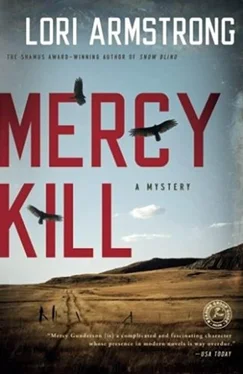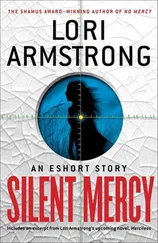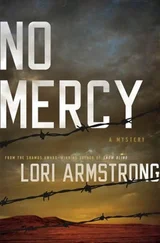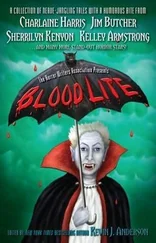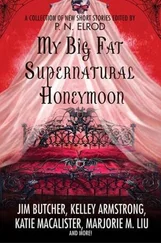At the time, that area was the most dangerous stretch of road in all of Iraq, nicknamed “the Gauntlet.” Our convoys were consistently subjected to IEDs, sniper fire, mortar rounds, grenades, RPGs, Molotov cocktails. Basically, anything they could throw at us-or shoot at us-they did. “They” meaning rebel kids as young as five and old arthritic men. The insurgents used every dirty, inhumane trick in the book, and the hell of it was, it worked… at first. Our side sustained plenty of casualties.
Those of us unfortunate enough to be in the forefront of the first wave of “protection” passed the intel back to the powers that be, who revised the ROE (Rules of Engagement), which details the level of force authorized, in addition to the EOF (Escalation of Force), which provides criteria for reaching that deadly force threshold. The rules were in place for a reason, but it was frustrating when we were subjected to restricted ROE-usually at the behest of whoever was in command.
Normally on the convoys, we were assigned to the gun trucks. None of the marines or our fellow army soldiers blinked at having a woman manning the machine guns. The most qualified person was selected for the job. Gender was a nonissue, and what defined “combat” was a murky area at best. Getting hit with mortar rounds every damn day at base camp meant we were all in combat situations, regardless of whether we were officially deemed in the field or not.
With limited manpower, each vehicle averaged four soldiers. One of our sniper team members was on each truck, usually running the M240B or the M2, along with a marine driver and the TC (Truck Commander) who operates the radios, monitors in-vehicle chatter, and is linked to the main battle command system BFT (Blue Force Tracker). The third person was a spare gunner in case something happened to the first gunner-sadly, that was a frequent occurrence.
Corporal McGuigan, a young marine, was behind the wheel. As the highest-ranking officer, Captain Thrasher took the passenger seat as the TC. In this particular procession, I was relegated to the backseat of the Humvee, the designated spare, while my team member A-Rod manned the turret.
Since it was a convoy situation, if we took sniper fire, we weren’t allowed to stop, pinpoint the source, and remove the threat, which was usually our job on the sniper teams. Instead, we had to duck and cover, wearing full battle rattle, and keep the convoy moving. That always chapped my ass, but like a good soldier, I did my job, shut my mouth, and snapped off a “Yes, sir.”
We rolled out at 2200, so by the time we saw the sun come up hours later, we’d almost be at our destination. The “no unscheduled stops” had been drilled into our heads from day one.
About four hours into the slow-going desert trek, we were advised to take a tactical pause-army speak for a piss break. Answering the call of nature was no big deal for the guys. Although most female soldiers balked at any kind of special treatment because of our gender, the darkness was a godsend for quick, private relief. The women I served with had incorporated unique tricks to emptying full bladders while in the midst of several hundred men and when confined in a vehicle. Consequently, I didn’t need to relieve myself and opted to remain inside the Humvee.
Turned out to be a smart move on my part, because we immediately came under attack from small-arms fire.
Chaos ensued. I heard shouts outside the vehicle, shouts in my headphones as everyone was ordered to cease fire. When I saw two of the other drivers dragging McGuigan behind our vehicle, I immediately scrambled out to check his injuries before Captain Thrasher barked at me to get my CLS (Combat Life Saver) bag.
McGuigan was dazed. The Kevlar vest had kept the sniper bullet from piercing the kid’s chest. A bullet had grazed the inside of his right thigh, just missing the femoral artery. It bled like a son of a bitch. I managed to get him patched up enough until we reached camp with medical facilities. McGuigan also sustained an enormous bruise on the back of his skull after smacking his head into the vehicle when he’d gone down. I made him as comfortable in the backseat of our Humvee as quickly as I could.
Without making eye contact with me, Captain Thrasher snapped, “You’re driving. Let’s go.”
I hated to drive. I tended to pass the buck to a subordinate whenever possible, but this time I didn’t argue. Thrasher outranked me, and every TC I’d ever dealt with would only give up his command post if he took direct fire and died.
Hours on the road without further engagement or incidents lulled me into a false sense of security. Around sunrise, when the shadows lengthened and played tricks on weary eyes, I saw something in the road two hundred yards ahead. I’d glanced at Thrasher, but he was fiddling with the headset. I briefly closed my eyes, reopened them, expecting a mirage, but I realized it was a person in the middle of the damn road. An old man dragging a goat tethered with a rope. At one hundred yards out I took my foot off the gas.
Thrasher looked up and said, “Why are you slowing down?”
“Civilian in the road, sir.”
Thrasher swore and then spoke to A-Rod through his headset. “Sergeant Rodriguez. Eliminate the obstacle in the road.”
“Roger, sir.”
The vehicle started to shake; A-Rod had fired up the M240B. The gunfire started and stopped abruptly. Over the headset I heard A-Rod say, “Sir, the gun jammed, and I missed the target. Give me a sec.”
“No time.” Thrasher faced me. “Run that fucker over, Master Sergeant.”
My grip increased on the steering wheel. “I’m just supposed to hit him head-on and watch him splat like a bug on the windshield?”
“Yes. And that’s an order.”
When I was behind my gun scope, I saw targets, not people. Procedure is simple: Aim. Verify. Shoot. I rarely remembered the faces of the targets I’d been ordered to eliminate, but this was different, this was an old man, probably someone’s grandfather. Wearing tattered dishdashas. Tethered to a goat. Probably the only livestock he owned. I saw the man’s face and his haunted, desperate eyes.
Which was probably why I swerved to miss him at the last second and set off the IED buried on the side of the road.
Dirt exploded across the windshield. I heard pieces of shrapnel chinking against the side of the vehicle. The Humvee rocked on its wheels, and we bounced hard before coming to an abrupt stop.
My ears rang, my head pounded, my body ached. The smell of burning rubber and oil was thick in the confines of the Humvee. And the taste of salt and dirt coated my lips and tongue.
Completely rattled, I squinted out the window, trying to take stock of the situation. Another man, not the old decrepit man who’d willingly sacrificed himself in hopes of taking a few of us out with him, was racing across the desert like a world-class sprinter.
Son of a bitch. The triggerman. We would’ve been fucked either way. I reached for my gun the same time the man’s head burst into scarlet mist and chunks of his body flew up like he’d been tossed into a meat grinder gone haywire.
As activity burst around me, I didn’t budge. I couldn’t believe I’d felt an ounce of sympathy. My hesitation, or dare I say my show of… humanity… disturbed me. The tip-off would’ve been obvious even to a wet-behind-the-ears private. No one stands by the road, alone, in a desert, in the wee small hours, defiantly facing down a U.S. military convoy.
And if they did? They certainly didn’t live to tell about it.
The IED didn’t significantly damage the Humvee, nor did A-Rod sustain anything but superficial injuries. She didn’t say a word when Thrasher and his commanding officer chewed my ass up one side and down the other.
Читать дальше
